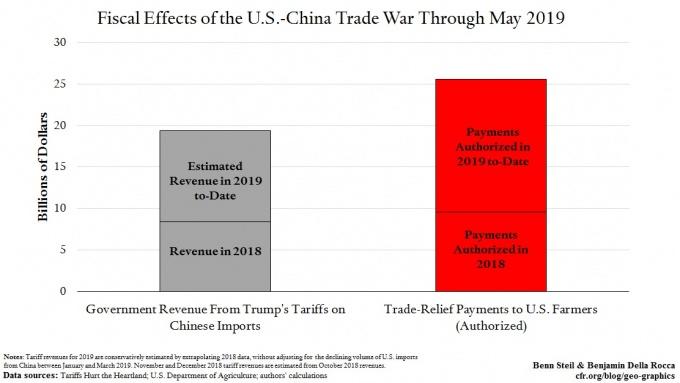President Trump is doing damage control relating to midwestern farm states that are critical to his re-election, according to Bloomberg. The president held a lengthy meeting in the oval office on Monday after facing criticism over the EPA's decision to give 31 refineries exemptions from biofuel blending requirements. Iowa's Senator Chuck Grassley said that Trump's administration had "screwed" farmers.
During Monday’s meeting, Trump mulled the idea of rescinding some of these waivers, but was told that they may not be reversible. However, officials offered other ideas to mitigate political impact in states like Iowa, which was crucial to Trump's 2016 election.
Among the suggestions was one to expand environmental credits that encourage production of flex fuel vehicles that can run on high ethanol gasoline - and a requirement for government agencies to use more of them. This could increase the use of corn in fuels.
The meeting on Monday was a microcosm of a larger clash over bio-fuel policy that pits farmers and oil against each other. Meanwhile, the Trump administration has been mostly divided, with the United States department of agriculture favoring farmers and the EPA insisting that day the law works in favor of refineries.
The meeting on Monday had started as a trade deal meeting but quickly turned into a discussion about farmers after former Iowa governor Terry Branstad raised concerns about the harm he believed the waivers were doing to farmers.
The meeting reportedly lasted two hours and included Branstad, Deputy Agriculture Secretary Stephen Censky, White House trade adviser Peter Navarro, White House economic adviser Larry Kudlow and National Security Council official Matthew Pottinger, Agriculture Secretary Sonny Perdue and EPA Administrator Andrew Wheeler.
Administration officials discussed broad policy changes designed to mitigate the impact on both the farming and oil industries. It was even suggested at one point that the automobile industry be mandated to make all vehicles capable of running on a of variety of fuels, but the idea was quickly rebuffed.
22 August, 2019
Other options that were discussed included fuel policy changes designed to make 15% ethanol gasoline a nationwide standard, replacing the 10% that is now common. Despite the EPA lifting restrictions on this fuel, fewer than 2000 stations offer it amidst limited consumer interest. The free market wins again...
Trump has been trying to broker peace between the biofuel lobby in the oil industry since 2017, but the US renewable fuel standard makes it difficult to satisfy both parties. Many of the ideas that were tossed around on Monday would require congressional action or complex federal rule making to implement.
Trump has been trying to broker peace between the biofuel lobby in the oil industry since 2017, but the US renewable fuel standard makes it difficult to satisfy both parties. Many of the ideas that were tossed around on Monday would require congressional action or complex federal rule making to implement.
Other proposals would benefit ethanol but do very little to address concerns for biodiesel makers that use soy bean oil as a feedstock.

Another idea being considered is boosting the amount of biodiesel and conventional renewable fuel that the EPA will require refiners to use over the next two years to compensate for expected waivers. The agriculture secretary has pushed the idea for months, despite opposition from EPA officials and oil companies.
White House discussions continue to center around a 14 year old federal law that says oil refineries need to use bio fuel to satisfy an annual quota set by the EPA. Small refineries can be granted an exemption, but biofuel proponents argue that the administration has handed out the waivers too freely.
The EPA granted 31 exemptions from biofuel blending in 2018 and denied six other applications. The president said on Monday that he felt "misled" by the high number of approvals. These exemptions have caused pushback throughout the Midwest where biofuel producers, their allies and farmers view the waivers as curbing demand for the products. The trade war has exacerbated things further.
Biodiesel producer World Energy Corp. blamed these waivers and a lapsed tax credit last week for a decision to shutter three of its plants.
EPA officials rebutted:
“There is zero evidence that EPA’s congressionally mandated small refinery exemption program -- which provides regulatory relief to small refineries around the country -- has had any negative impact on domestic corn ethanol producers. In fact, the Trump administration has overseen year-over-year increases in domestic fuel ethanol production, to the highest level in history and the United States exported a record volume of ethanol in 2018 for the second consecutive year.”




No comments:
Post a Comment
Note: only a member of this blog may post a comment.